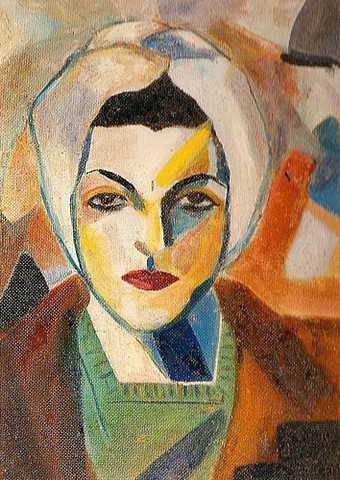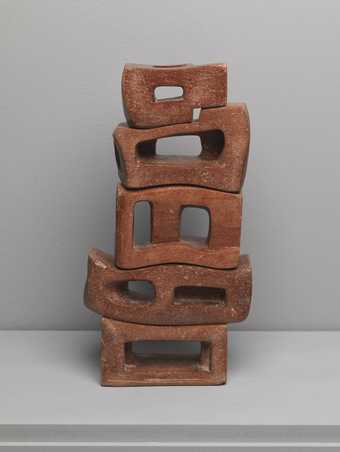Tate Modern, Level 4
17 April – 20 October 2013 (Press view: 16 April 2013)
Open every day from 10.00 – 18.00 and until 22.00 on Friday and Saturday
Admission £10 (£8.50 concessions) or £11 (£9.50 concessions) including Gift Aid donation
For public information number please print 020 7887 8888
Tate Modern will present the world’s first major museum exhibition of Lebanese artist Saloua Raouda Choucair (born 1916). Comprising over 120 works, many of which have never been seen before and are being exhibited for the first time, this exhibition will bring together paintings, sculptures and other objects made by the artist over six decades, reflecting her interests in science, mathematics and Islamic art and poetry. In Choucair’s 97th year, this retrospective will celebrate her extraordinary body of work and her contribution to international modernism.
Choucair is a pioneer of abstract art in the Middle East and is now becoming recognised as an important figure in the history of global modernism. A rare female voice in the Beirut art scene from the 1940s onwards, her work combines elements of western abstraction with Islamic aesthetics. It is characterised by an experimental approach to materials alongside an elegant use of modular forms, lines and curves drawn from the traditions of Islamic design.

Saloua Raouda Choucair
Self Portrait 1943
© Saloua Raouda Choucair Foundation
The exhibition focuses on Choucair’s sculptures from the 1950s to the 1980s, created in wood, metal, stone and fibreglass, as well as key examples of her early paintings such as Self-Portrait 1943 and Paris-Beirut 1948. The artist often created works in discrete series, a number of which will be included in the exhibition. These include her ‘interforms’, such as Sculpture with One Thousand Pieces 1966-1968, which comprise of seemingly simple cubes or blocks which house intricately carved and highly complex internal forms.
Works known as ‘duals,’ consisting of two carefully interlocking parts and a selection of her modular ‘poems’ series will also be on display. These works are made from individual pieces that stack together in a flexible way, much like the stanzas of Arabic poetry. Constantly challenging the form, Chouair thought of many of her works as being in constant flux: structures to be altered by the viewer, the elements or the artist’s own additions and subtractions over time. Like a Mobius strip her work is endlessly various, returning to specific themes but never with the same attributes or form.

Saloua Raouda Choucair
Poem 1963–5
© Saloua Raouda Choucair Foundation
Born in Beirut in 1916, Saloua Raouda Choucair began painting under the tutelage of leading Lebanese landscape artists Mustafa Farroukh and Omar Onsi. She studied at the American University in Beirut and the Ecole des Beaux-Arts in Paris, and attended the studio of Fernand Léger in the late 1940s. After a period in the United States, she returned to live and work in her homeland in 1955. Throughout the 1980s and 90s Choucair received increasing recognition and awards for her work in Lebanon, including a number of commissions for public sculpture in Beirut. Her work has been shown at UNESCO Palace in Beirut, the Beirut Exhibition Centre and most recently in a display of newly acquired works at Tate Modern.
The exhibition is co-curated by Jessica Morgan, The Daskalopoulos Curator, International Art and Ann Coxon. It will be accompanied by an illustrated catalogue with essays by Kirsten Scheid of American University Beirut, Kaelen Wilson-Goldie, a writer and critic based in Beirut and the curators of the exhibition, produced by Tate Publishing.
